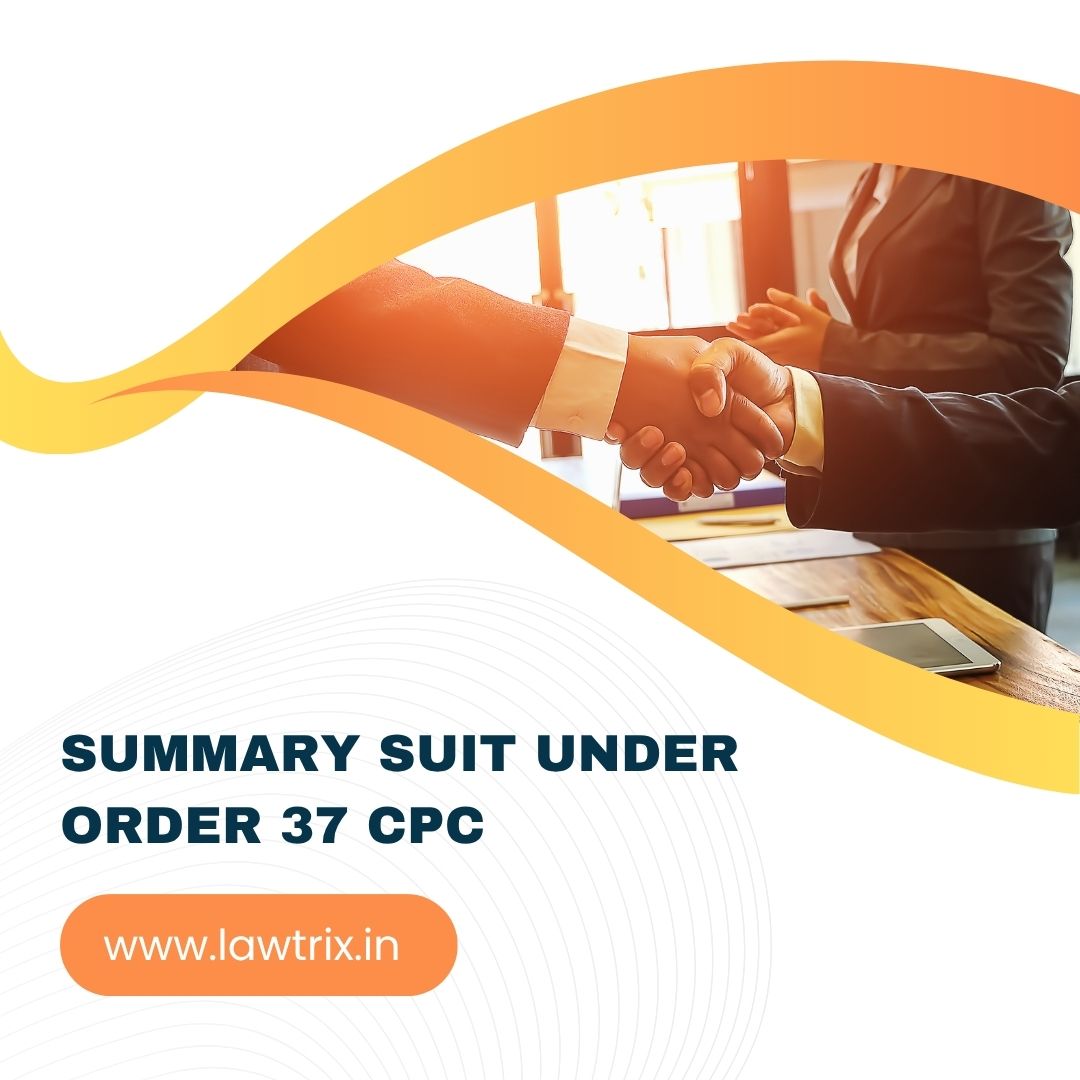What Is a Summary Suit Under Order 37 CPC?
What Is a Summary Suit Under Order 37 CPC?
Order 37 of the Code of Civil Procedure, 1908, provides a special procedure known as a summary suit. This mechanism allows a plaintiff to recover a debt or liquidated amount swiftly, without facing delays common in regular civil trials.
In this article, we’ll explain the meaning, scope, eligibility, procedure, and advantages of summary suits under Indian law.
Meaning of Summary Suit
A summary suit is a fast-track legal process used primarily for recovery of money. It enables the plaintiff to obtain a judgment without undergoing a lengthy trial, unless the defendant successfully proves they have a legitimate defence.
Unlike ordinary suits, leave to defend must be sought by the defendant — otherwise, the court may directly pass a decree.
Legal Basis – Order 37 CPC
Order 37 CPC applies to:
Suits based on bills of exchange, hundis, promissory notes, or
Suits where the plaintiff seeks recovery of a debt or liquidated demand arising from a written contract, guarantee, or enactment.
This rule restricts the defendant's right to defend unless they satisfy the court that there’s a substantial issue worth trying.
When Can You File a Summary Suit?
A summary suit can be filed if:
There is a written contract or document establishing the debt
The debt is definite and undisputed (liquidated)
The suit falls under the jurisdiction of a High Court, City Civil Court, or other notified court
Common examples include:
Non-payment of invoices by clients
Dishonour of cheques (in addition to 138 NI Act proceedings)
Recovery from business partners under MOUs or written agreements
Procedure for Filing Summary Suit
Filing of Plaint: Clearly state that the suit is under Order 37. Attach the contract/document relied upon.
Summons for Appearance: Defendant must appear within 10 days of service.
Leave to Defend:
Defendant must apply for leave to defend within 10 days
Court grants leave only if the defence is not sham or illusory
Judgment: If no leave is granted or no appearance is made, the court may pass decree immediately in favour of the plaintiff.
What Happens if Defendant Ignores the Summons?
If the defendant:
Fails to appear within the timeline, or
Does not seek leave to defend, or
Fails to establish a valid defence
…then the court can directly pass a judgment and decree in favour of the plaintiff.
This saves years of litigation and is particularly helpful in commercial disputes.
? Advantages of Summary Suits
Time-saving – No lengthy evidence stage
Cost-effective – Fewer hearings
Discourages frivolous defence
Strong tool for businesses and professionals
Limitations of Summary Suits
Only applicable to specific categories of debts
Leave to defend can prolong case if granted
Not suitable for complex or disputed contracts
Conclusion
Summary suits under Order 37 CPC are an excellent remedy for fast recovery of money. Whether you’re a business, a professional, or an individual with a strong written contract, filing a summary suit can help you obtain relief quickly and effectively.
However, ensure your documents are in order, the debt is liquidated, and the court has jurisdiction. Legal advice before filing is always recommended.


